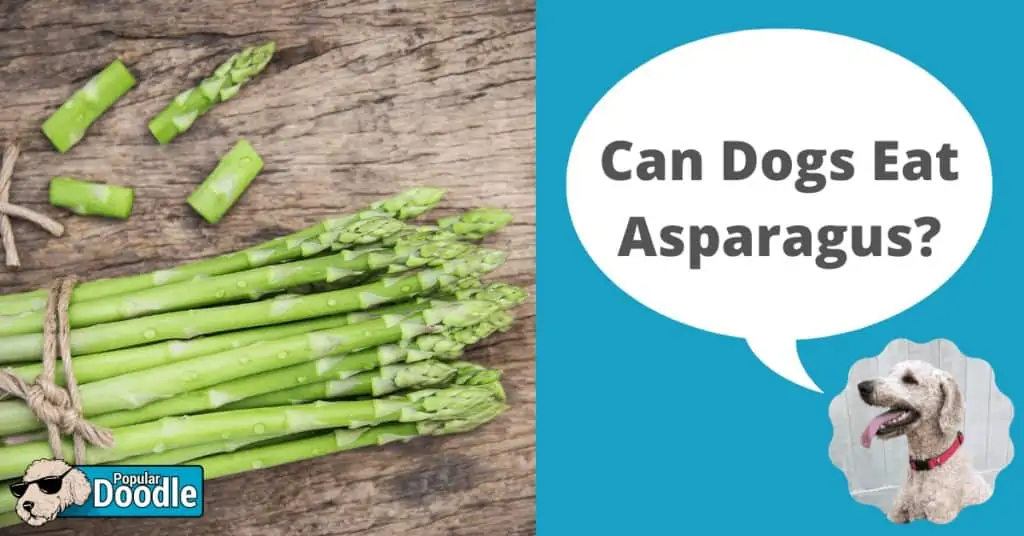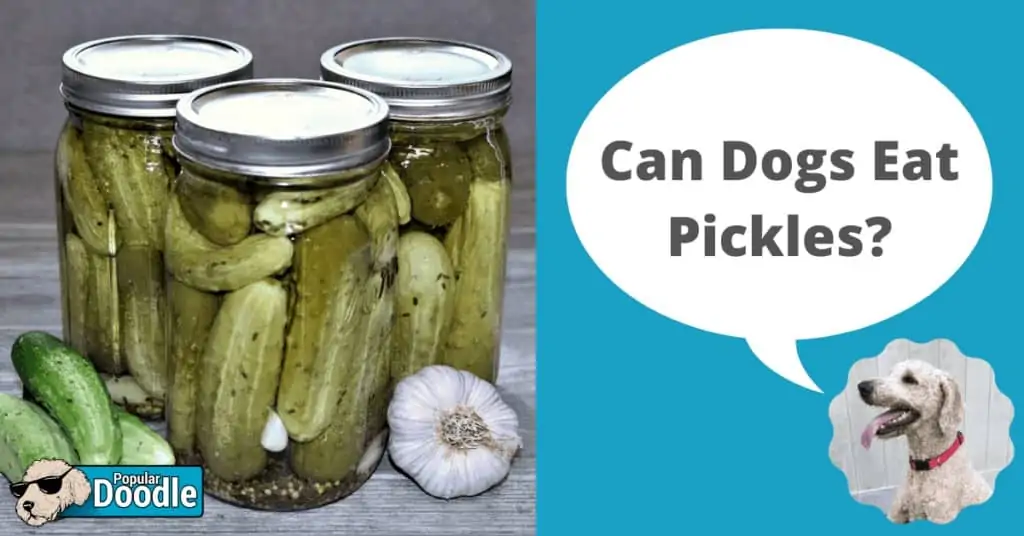
As a dog owner, sharing healthy snacks with our pups is a great way to bond and give them a bit of variety in their diet. That often leads to us asking questions like “can dogs eat asparagus?” Asparagus is a healthy food for humans, but is it alright to share with our furry companions? If your dog manages to eat some before you realize it, should you take them to the vet? Alternatively, is asparagus good for dogs? Let’s get those questions answered!
Can Dogs Eat Asparagus? (The Short Answer)
Yes, in general asparagus is good for dogs. There are a few important things to remember, however. Cooked asparagus (plain, without butter or seasonings) is safe while uncooked is tough for dogs to digest and a potential choking hazard. Additionally, the asparagus plant itself is poisonous to dogs so make sure if you have it in your home garden to fence it away from your pups.
It’s important to remember, that even with the best of intentions, accidents happen and dogs can easily eat things they shouldn’t. Unfortunately, even if those accidents aren’t fatal, they can result in huge, unexpected veterinary expenses. That’s why we recommend all responsible dog owners get a free, online pet insurance quote from Healthy Paws.
Is Asparagus Good For Dogs?
We’ve already answered the question, “can dogs eat asparagus?” Now, let’s learn about the benefits of feeding your dog this food! Is asparagus good for dogs?
Just as does for humans, asparagus has a host of health benefits for our pups. It’s high in fiber, potassium, Vitamin A and Vitamin B all of which are important nutrients for dogs. It’s also low in fat and sugar making it appealing for pups on weight management plans. Research has linked asparagus to reducing risks of cancer and joint pain in animals. While many of these nutrients can be diminished due to cooking, it’s still safer than raw asparagus and it doesn’t lose all its nutritional value.
Is Asparagus Bad For Dogs?
The biggest danger of asparagus isn’t the tips or stalks itself, but the plant it grows on. The vines of the plant and the berries it produces are both highly toxic to dogs. If you grow asparagus in your yard, make sure it is fenced and safely away from your furry friends.
If you’re simply buying asparagus at the store, your dog’s risks are significantly reduced. Raw asparagus, while not toxic, can be dangerous to your pup as it presents a significant choking hazard. If you choose to feed your dog raw asparagus, make sure to chop it into very small pieces. However, even in small pieces this food is very hard for your dog to digest and may end up upsetting their stomach. It’s definitely best to stick to only feeding your dog cooked asparagus.
Finally, be sure your cook asparagus plain without any added butter, oils, or seasonings all of which can make your dog sick. Instead, simply steam or boil your asparagus to make it safe for your furry friend.
Varieties of Asparagus & Asparagus Products:
Can Dogs Eat Asparagus Spears?
Yes, asparagus spears are safe for pups as long as they are cooked. Steam or boil them without any added butter, oils, or seasonings and you’re good to go!
Can Dogs Have Asparagus Plants?
No, the non-edible parts of asparagus plants are highly toxic to our furry friends. If you grow asparagus in your home garden, make sure to fence it off to keep your dog safely away. If your dog ingests any of the vines or berries from this plant, contact your veterinarian immediately.
In Conclusion: Can Dogs Eat Asparagus?
Asparagus is a healthy treat that we can share with our pups when cooked properly. While not toxic raw, it’s not recommended due to choking hazards and it being tough to digest. Additionally, the non-edible portions of the asparagus plant are toxic for pups so keep them away from your garden!
Want to Learn More?
Check out these related articles from our “Read Before You Feed” series for more advice on safe foods for dogs!
- Can Dogs Eat Celery?
- Is Beef Jerky Bad for Dogs?
- Can Dogs Eat Zucchini?
- Are Cheetos Bad for Dogs?
- Can Dogs Eat Pumpkin?
Disclaimer: We are not veterinarians and this article should not be taken as medical or veterinary advice. If you have any questions about your pet’s health or dietary needs, please contact your local veterinarian.








